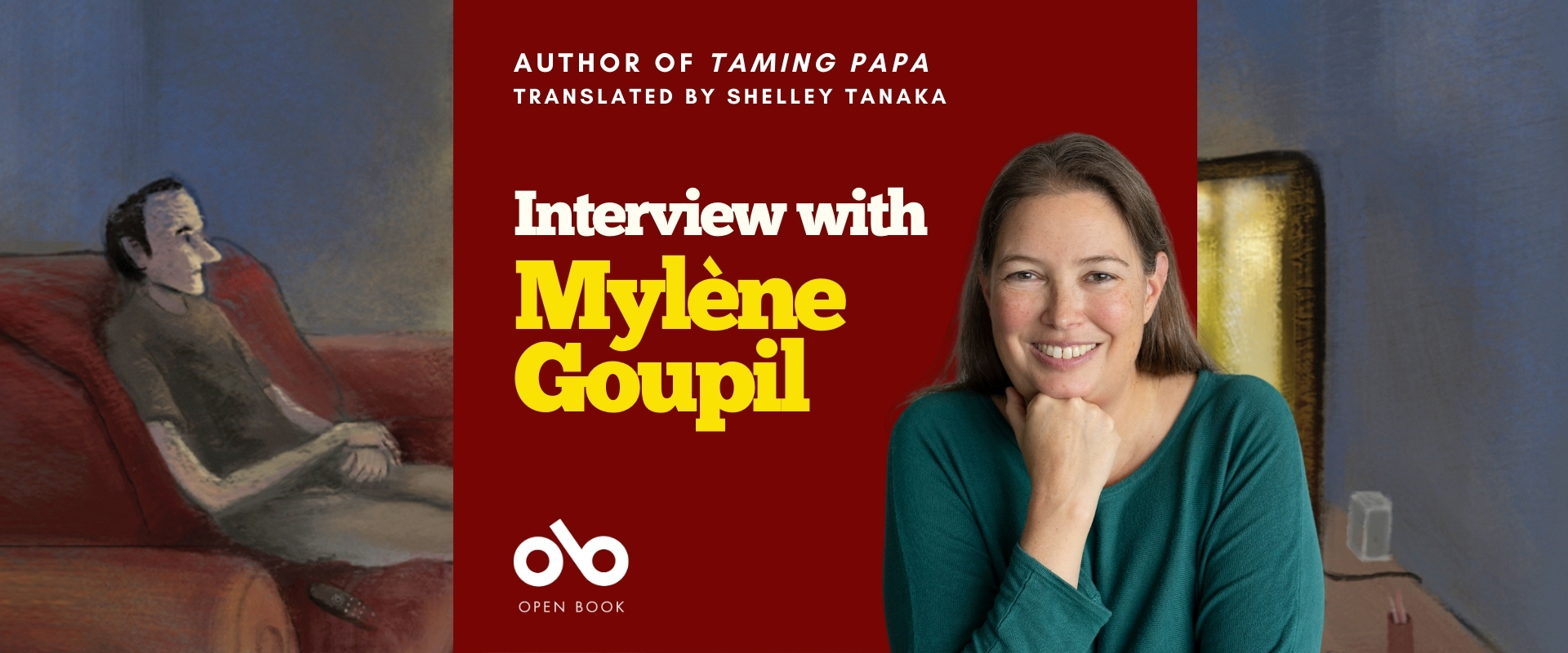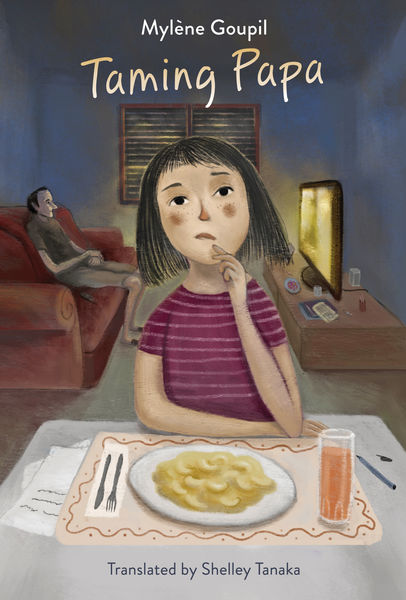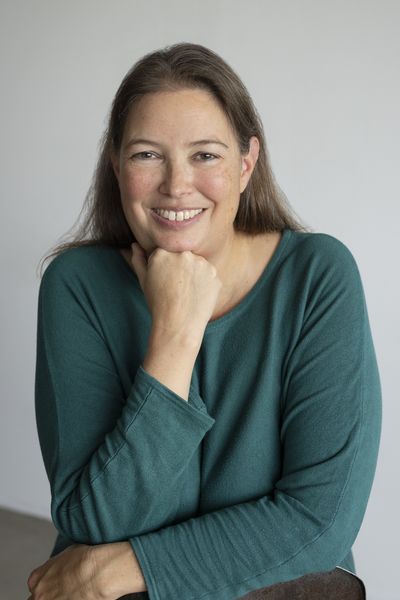Mylène Goupil Explores the Difficulties that Come With Change in Taming Papa
What does a young girl do when a parent comes into her life suddenly, and everything changes?
This question is at the heart of Taming Papa (Groundwood Books) by Mylène Goupil (translated from French by Shelley Tanaka), in which Mélie finds her life upended when her father - recently a political prisoner in another country, who she has never met - is released and joins her family in Montreal.
With a language barrier adding to the disruption and quietude between them, Mélie must find a way to manage this relationship, and tame him enough to show him the way to living free in his new home.
The author shares more about Taming Papa in this Kid's Club Books for Young People interview:
Open Book:
Tell us about your new book and how it came to be.
Mylène Goupil:
Taming Papa is the story of Mélie, an 11-year-old girl who has been living with her single mom all her life and learns that her dad, who she has never heard of before, is coming to live with them. Taming Papa explores the difficulties that come with change in one’s life as well as the communication problems between Mélie and her dad that Mélie tries to overcome. Taming Papa is the second story I have written about Mélie’s character. The first book, Mélie sous sa bonne étoile, was centered on Mélie’s relationship with her mom and her longing for a father in her life. In that book, I didn’t give any details about the father or why he wasn’t part of Mélie and her mom’s life. But I already knew the whole story. And at some point, I felt the need to tell it.
OB:
Did the book look the same in the end as your originally envisioned it when you started working, or did it change through the writing process?
MG:
I didn’t have a plan for this book. I just started writing and things fell into place. So I can’t say that much changed from the beginning to the end of the writing process of the first draft. But then, once my editor agreed to publish it, there were some major changes to make. I wrote this book the same way I wrote the previous one, which was for readers from 7 to 9 years old. Meaning that I only used “mom” and “dad” to speak about Mélie’s mother and father. My editor, Stéphanie, suggested that I should adapt the style for an older audience. Honestly, I thought that it would be a piece of cake. It wasn’t. Some sentences were just not as fluid when I simply replaced “mom” with “Mélie’s mom”. After a while, I had to admit that the best way to address this problem would be to give Mélie’s parents first names. And that turned out to be the hardest part. When I wrote Mélie’s books, I had a firm intention to avoid references to her family’s origin. I wanted them to represent any immigrant or refugee living in a new country, wherever they come from. Choosing names meant linking them at least to a culture if not a specific part of the world. So I Googled to find out which names were the most popular around the world and finally decided on Sofia and Sami.
Another important change came after Juliette, one of my early readers, commented that there was something unfinished about the birthday card story. After reading the manuscript once again, I knew that she was right. This led to Chapter 39, which was so easy to write because everything seemed to just fall naturally into place. And it is one of my favourite parts of the book.
Your CanLit News
Subscribe to Open Book’s newsletter to get local book events, literary content, writing tips, and more in your inbox
OB:
What was the strangest or most memorable moment or experience during the writing process for you?
MG:
The whole process was memorable because it mostly took place during Spring 2020 in COVID lockdown. To help my mom, who lives a couple hundred kilometers away from me, feel less isolated and to give her some entertainment during the lockdown, I sent her the story, chapter by chapter, by traditional mail. I never told her when she was going to receive a letter so she had to go check her mailbox every day. Then I waited for her to call to discuss the plot, the characters and sometimes to hear her complain that there were not enough pages to read. Those were precious moments to share, and it was a great motivation to know that I had someone waiting for me to keep writing.
OB:
What do you need in order to write – in terms of space, food, rituals, writing instruments?
MG:
The only thing I really need is some mental space, which makes the shower the perfect place for ideas. Or folding laundry (which Mélie does in the book too). When I plan to take some time to write, I sometimes make sure I can rely on a huge pile of laundry to fold in case I have writer’s block. I also used to always listen to the same music while writing and I find that whenever I put that music on while at my computer, it puts me in the right mindset to work on my stories.
OB:
What are you working on now?
MG:
In 2023, I published a third book (well, it’s technically my fourth, but there was a 27-year gap between my first and my second, so I tend to not count the first one), called Les enfants brocolis. The writing process was very intense and although I was more than glad to finish it, I couldn’t stay away from the characters for very long. So I am trying to write a sequel, just to spend a little more time with them. And after that I might come back to Mélie because there is a last part of her story that already exists and that I have yet to tell.
____________________________________________________
Mylène Goupil lives in Blainville, Quebec, where she works as an editor, proofreader and translator of technical communications. She is the author of the French books Le détonateur, Mélie sous sa bonne étoile and Mélie quelque part au milieu, published in English as Taming Papa. Mylène fell into reading when she was little and hasn’t stopped since — so it was only natural that she would end up writing some books of her own!
Shelley Tanaka is an award-winning author, translator and editor who has written and translated more than thirty books for children and young adults. She teaches at Vermont College of Fine Arts in the MFA Program in Writing for Children and Young Adults. Shelley lives in Kingston, Ontario.






